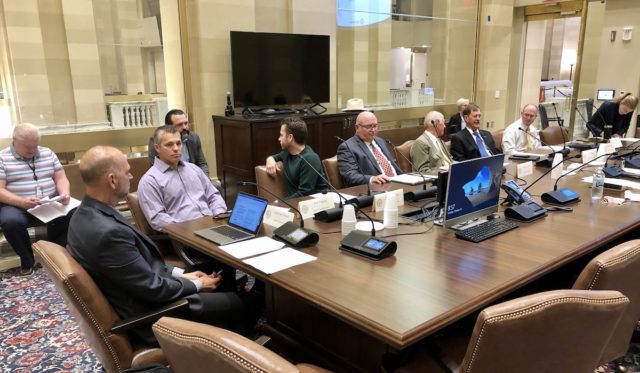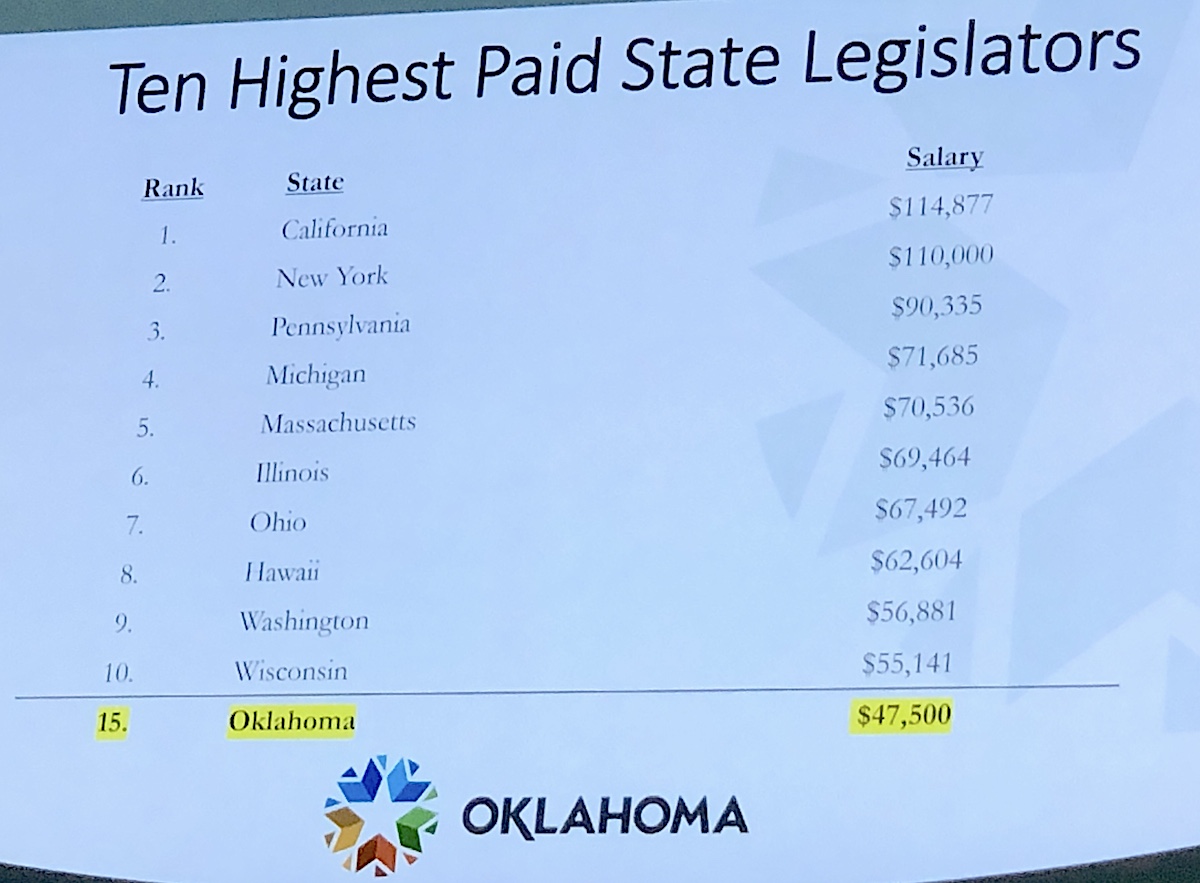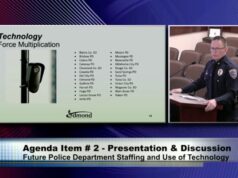

Oklahoma is almost top 10 in legislative pay. This morning, the obscure board that has exclusive power to set lawmaker pay said that’s good enough.
Members of the Legislative Compensation Board voted 7-1 to maintain the current salary of elected legislators at $47,500 per year, a figure that reflects the $12,749 raise approved by the board in 2019, the first hike of lawmaker pay in 20 years.
“The timing of that decision, although I was in agreement with it, created a bit of a firestorm for legislators to deal with,” said Chairman Lawrence Neisent, referencing the subsequent pandemic. “To come out two years later with another raise for (certain) legislators, that will be something that will become a matter of discussion between legislators and their constituents.”
Neisent made his remarks before board members voted on a motion to raise the pay of lawmakers in leadership positions, including the speaker of the House, the president pro tempore of the Senate, appropriations chairpersons and majority and minority floor leaders.
While three board members supported raising leadership stipends — which stayed flat in 2019 — five members opposed the motion.
The board also chose not to request that staff provide more “apples to apples” data between Oklahoma and other states, letting a motion by Scott Mitchell for additional comparative figures die on the vine without a second.
Benefits and comparisons

Mitchell made his motion to request more comparative data after Oklahoma Management and Enterprise Services administrator of human capital management Jake Smith presented a series of slides regarding lawmaker pay.
Those slides showed Oklahoma’s $47,500 base salary for legislators as being 15th highest in the country, albeit just more than half of the pay in Pennsylvania, the third highest state.
But Smith noted that total compensation packages and details vary greatly from state to state. Texas lawmakers, for instance, are paid only $7,200 per year in salary, but they receive significant pension benefits and only meet for a maximum of 140 regular session days every two years. Arkansas raised its pay from $41,394 to $42,428 last year, while Missouri has not raised legislator pay since 2009, when the figure was bumped to $35,915.
Smith also noted that “most states provide legislators with an allowance for office supplies,” and some states fund lawmaker offices in their home districts. Some states provide no office stipends. Oklahoma’s legislators receive a small office supply stipend: $1,500 per year for members of the State Senate and $2,000 per year for members of the House of Representatives.
Oklahoma lawmakers used to receive an annual allotment of taxpayer-funded postage stamps, but they no longer do. (That job perk was the focus of a 1994 criminal investigation into whether Republican lawmakers broke the law by donating their stamps to then-Rep. Mike Hunter, the GOP nominee for attorney general. Some called the investigation politically motivated, although Hunter issued refunds to eight legislators who had donated their stamps.)
In addition to their $47,500 base salary, Oklahoma lawmakers also receive $7,919 per year in benefits and a 7 percent (or $3,325) state retirement contribution. Many lawmakers also receive per diem during the legislative session, which totaled $11,055 for 67 days of regular session in 2021. But lawmakers who reside within 50 miles of the State Capitol do not receive that amount of per diem. Mileage reimbursement levels are authorized by statute, which the Legislature has the power to adjust.
Proposed leadership stipend hike falls short
Contrary to the claims of 2020 television advertisements aired by both parties in Oklahoma’s 5th Congressional District, the Oklahoma Legislature does not vote on its own base salary or leadership stipends. The Legislative Compensation Board has exclusive authority over lawmaker salaries and stipends. Five members of the board are appointed by the governor, two members are appointed by the leader of the State Senate, and two members are appointed by the leader of the Oklahoma House.
Tuesday, eight members of the board were present. Brandon Long, appointed by House Speaker Charles McCall (R-Atoka) in 2019, was absent. All current members of the board are male.
Alan Jett, appointed by Senate President Pro Tempore Greg Treat (R-OKC), cast the only votes against keeping lawmaker pay flat. Jett argued in favor of raising the additional leadership stipends — currently $17,932 per year for the House speaker and Senate leader; and $12,364 for appropriations chairpersons and other leaders.
“Most of those jobs are almost full time. There is a lot that goes into those jobs,” Jett said of leadership positions. “That’s one of the misconceptions people have. Legislators, especially leadership, work a lot more days than they are in session.”
Smith concurred: “I would say these are considered full-time jobs.”
Board member Robert Kane, appointed by Treat in 2019, moved to hike the leadership stipends to $22,087.50 and $15,290.05, respectively. He argued that the leadership stipends were not changed in 2019 when the board voted to raise lawmaker pay across the board.
Kane, Jett and Mitchell cast the only votes in favor of the stipend increase. Board members Neisent, James O’Dea, Jonathan Dodson, Scott Douglas and Robert DeNegri voted against it.
The Legislative Compensation Board is required to meet in October during odd-numbered years. The current board membership is the same as it was in 2019 when lawmaker pay was raised for the first time in 20 years.
In 2017, after a special session had failed to unlock a vote to raise revenue, balance the state budget and provide teachers with a pay increase, an entirely separate set of Legislative Compensation Board members voted to reduce lawmaker salaries by 8.8 percent, a decision they admitted was punitive.
Lawmakers eventually struck a historic tax package deal in late March 2018.
Judicial pay raise recommendation pending
While legislators do not control their own pay, they do have input into the salaries for judges.
In September, the independent Board on Judicial Compensation met and recommended a 7.67 percent increase for all judges. State law directs that recommendation to take effect unless the Legislature modifies it or denies it outright.
Lawmakers will consider the judicial pay raise proposal during the 2022 regular session, and budget leaders are already meeting with judges on the matter.




















